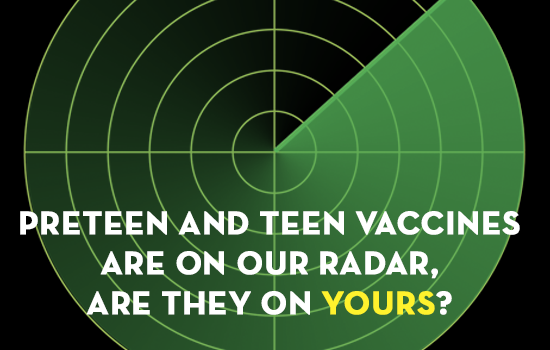Today we reported how well the nation is doing on coverage of three important vaccines recommended for all adolescents: Tdap, MCV4 and HPV.
There was good news. The Tdap vaccine protects against three serious diseases: tetanus, diphtheria and pertussis (known as whooping cough). In 2012, national Tdap coverage rates for teens 13 to 17 years old increased to nearly 85 percent. That's 6 percent more than the same time a year before. This is heartening because improved Tdap coverage in adolescents is important to protect infants too young to be fully immunized.
Coverage for MCV4, the vaccine that protects against meningococcal meningitis, was also up, now at 74 percent, although that's still below the coverage we need to be sure our children are adequately protected against this serious disease.
The HPV vaccine, protecting against human papillomavirus which can lead to cancers in both men and women, was first recommended for adolescent boys in 2011. For boys, vaccination rates increased from about 8 percent in 2011 to more than 20 percent in 2012. For girls, the coverage rate of about 53 percent has stayed the same.
These low coverage rates are disappointing -- this vaccine can protect the next generation against cancer.
Doctors can make all the difference. A doctor's recommendation to vaccinate is the single most important factor in a parent's decision to vaccinate. When we ask parents why their children aren't fully vaccinated, many say their doctor didn't explain the vaccinations needed.
Every yearly checkup, every sports- or school-related physical exam, every visit for a sick child is a chance to protect our children against serious disease and cancer. If doctors consistently recommend these vaccines, and make time to listen to parents' concerns, they can improve coverage rates and safeguard our children's health. Doctors can use our "tips and timesavers" for talking with parents about HPV vaccines.
Parents and caregivers should ask about vaccination every time they take children for a health care visit. For many families, it's easier than ever to get complete vaccination coverage. Because of the Affordable Care Act, most private health insurance plans must cover the recommended vaccines with no co-pay or deductible. In addition, the Vaccines for Children program provides vaccines for children ages 18 years and younger who are under-insured, not insured, Medicaid-eligible or American Indian/Alaska Native.
If we don't increase the number of children vaccinated, we're risking the health of the next generation.
How can you help increase our nation's vaccination rates?
